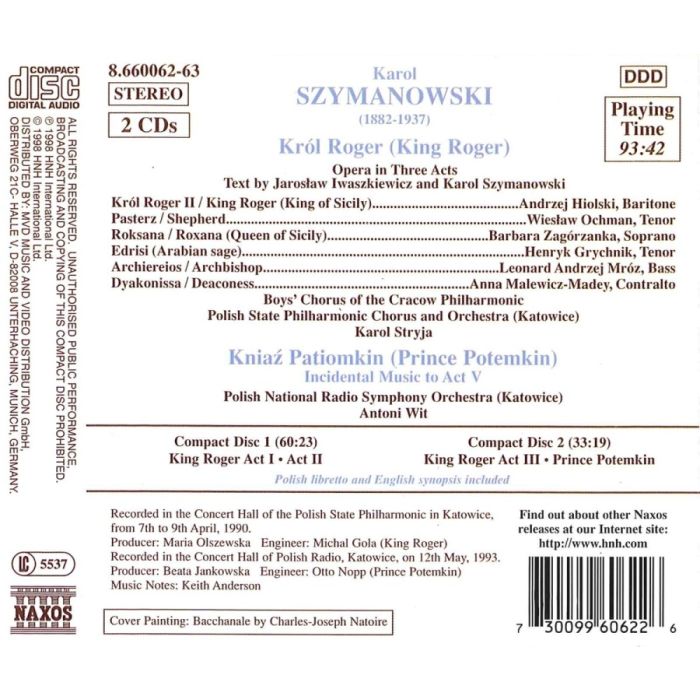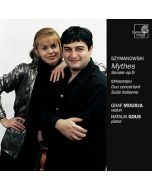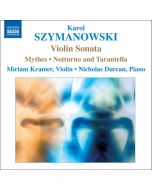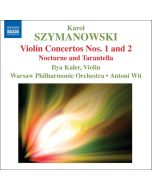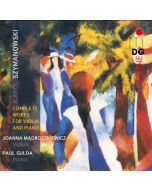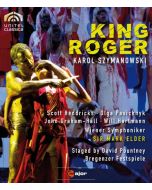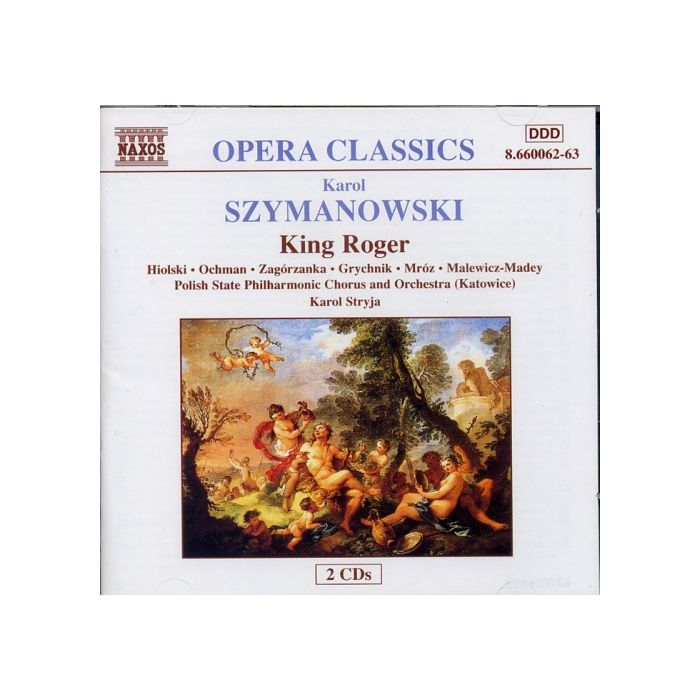
(Produkt nie został jeszcze oceniony)

kompozytor
Szymanowski, Karol
tytuł
Szymanowski: Król Roger
wykonawcy
Cracow Philharmonic Boys Chorus, Grychnik, Henryk, Hiolski, Andrzej, Malewicz Madej, Anna, Mroz, Leonard Andrzej, Ochman, Wieslaw, Polish National Radio Symphony Orchestra (NOSPR Katowice), Polish State Philharmonic Chorus, Katowice, Polish State Philharmonic Orchestra, Katowice, Stryja, Karol, Wit, Antoni, Zagorzanka, Barbara
nr katalogowy
8.660062-63
opis
The opera King Roger was first conceived by Szymanowski and his distant cousin Jaroslav Iwaszkiewicz in June 1918 in Elizavetgrad. It was here that Szymanowski wrote his homoerotic novel Efebos, which remained unpublished and was lost in the disturbances of 1939.
In August Szymanowski was in Odessa and there received from Iwaszkiewicz, now in Warsaw, a sketch of the libretto for the new opera. The latter, engrossed in the Warsaw activities of the Skamander group of poets, lost interest in the project, leading Szymanowski to rewrite the second and third acts. The composition of the work took some seven years and King Roger was finally performed for the first time in Warsaw in June 1926.
The subject of the opera is the conflict between King Roger, Norman ruler of Sicily, and the Shepherd, revealed finally as Dionysus himself, in a plot that echoes the legend that was the source of the Bacchae of Euripides, where King Pentheus opposes the power of Dionysus and is killed by the followers of the god, who include his wife and his mother. In more modern terms the conflict between Dionysus and Apollo, the wild and orgiastic as opposed to the serene in Greek art, had been the subject of Friedrich Nietzsche's controversial Die Geburt der Tragodie aus dem Geiste der Musik (The Birth of Tragedy from the Spirit of Music). In this book he had maintained that Greek music and tragedy were essentially Dionysian, with the serenity formerly considered the leading feature of Greek art to be found in architecture, an expression of the Apolline. The conflict later found noted literary expression in Thomas Mann's Der Tod in Venedig, the source of Britten's opera Death in Venice, and in the work of the psychologist Jung.
The subject of King Roger and even more its musical construction have a parallel in the contemporary work of Franz Schreker, where similar conflicts are recognised, as in other writing and music of the period. Rezensionen
In August Szymanowski was in Odessa and there received from Iwaszkiewicz, now in Warsaw, a sketch of the libretto for the new opera. The latter, engrossed in the Warsaw activities of the Skamander group of poets, lost interest in the project, leading Szymanowski to rewrite the second and third acts. The composition of the work took some seven years and King Roger was finally performed for the first time in Warsaw in June 1926.
The subject of the opera is the conflict between King Roger, Norman ruler of Sicily, and the Shepherd, revealed finally as Dionysus himself, in a plot that echoes the legend that was the source of the Bacchae of Euripides, where King Pentheus opposes the power of Dionysus and is killed by the followers of the god, who include his wife and his mother. In more modern terms the conflict between Dionysus and Apollo, the wild and orgiastic as opposed to the serene in Greek art, had been the subject of Friedrich Nietzsche's controversial Die Geburt der Tragodie aus dem Geiste der Musik (The Birth of Tragedy from the Spirit of Music). In this book he had maintained that Greek music and tragedy were essentially Dionysian, with the serenity formerly considered the leading feature of Greek art to be found in architecture, an expression of the Apolline. The conflict later found noted literary expression in Thomas Mann's Der Tod in Venedig, the source of Britten's opera Death in Venice, and in the work of the psychologist Jung.
The subject of King Roger and even more its musical construction have a parallel in the contemporary work of Franz Schreker, where similar conflicts are recognised, as in other writing and music of the period. Rezensionen
nośnik
CD x 2
wydawca
Naxos
data wydania
7.04.1998
EAN / kod kreskowy
730099606226
Produkt nagrodzony:
BBC Music Magazine: 'Editor's Choice' (2011)
89,00 zł
Produkt dostepny w niewielkiej ilości.
Wysyłka w ciągu 3 dni roboczych
Darmowa wysyłka dla zamówień powyżej 300 zł!
Darmowy kurier dla zamówień powyżej 500 zł!
sprawdź koszty wysyłki